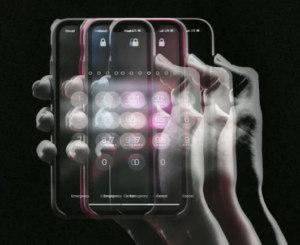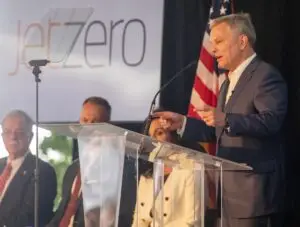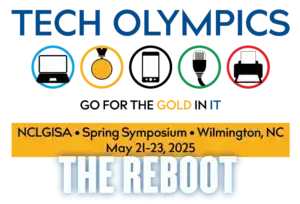In a huge victory against robocalls, the FCC proposed a $300 million fine against Cox/Jones Enterprise. This is the largest ever proposed fine against an auto warranty scammer. The FCC is working tirelessly to crack down on robocalls, and this latest action shows that they are serious about stopping these calls. If approved, this fine sends a clear message to scammers that robocalling will not be tolerated!
What Exactly are Robocalls?
Robocalls are prerecorded messages that are dialed by an automated system. Some robocalls are legal, but others are illegal if they are trying to sell you something without your consent. Robocalls have been a problem for many years, but they have become increasingly prevalent in recent years due to advances in technology.
There are a few different ways that robocalls are made. The first is through the use of autodialers, which are computerized systems that can automatically dial large numbers of phone numbers. These autodialers are often used by telemarketers and other businesses to make mass calls.
The second way is through the use of Voice over Internet Protocol (VoIP), which allows calls to be made over the internet instead of traditional phone lines. This method is often used by scammers and fraudsters because it is difficult to trace the origin of the call.
Robocalls are generally considered to be annoying and intrusive, and they are often illegal if they are unsolicited and trying to sell you something like an extended home warranty. There are a few steps to take to protect yourself from robocalls, including being on the National Do Not Call Registry and being aware of what to look for in a scam call. You should also know how to report a robocall if you receive one.
How Are Robocalls a Problem?
 The problem with robocalls is that they are cheap and easy to make, which makes them appealing to criminals who want to defraud people out of their money. Every year, scammers all over the world use robocalls to steal billions of dollars from Americans.
The problem with robocalls is that they are cheap and easy to make, which makes them appealing to criminals who want to defraud people out of their money. Every year, scammers all over the world use robocalls to steal billions of dollars from Americans.
What makes robocalls so difficult to stop is that they can be made from anywhere in the world, using VoIP (Voice over Internet Protocol) technology. This means it is very hard for authorities to trace where the calls are coming from and shut them down.
Another issue is that scammers are constantly changing their tactics, so even if you have managed to avoid being scammed in the past, you may not be so lucky next time. One of the most common ways that scammers trick people is by spoofing caller ID information so that the call appears to be coming from a legitimate source like a government agency or a well-known company.
If you do receive a robocall, the best thing to do is just hang up. Do not engage with the caller, even if they say they are from a legitimate organization. Remember, scammers will say anything to try and trick you into giving them your personal information or money.
With all of this said, it’s important to remember that not all robocalls are scams. Some companies use automated calls as part of their customer service or marketing efforts. However, these calls should always give you the option to opt out of future calls, and you should never be asked for personal information like your Social Security number or credit card number.
What is the FCC doing about the Problem?
The FCC’s proposed $300 million fine against an auto warranty robocall campaign is the largest-ever penalty proposed by the agency over unwanted calls. In the scheme run by two California men, Roy Cox, Jr., and Michael Aaron Jones via their Sumco Panama company and other entities, more than 5 billion apparently illegal robocalls were made to more than half a billion phone numbers during a three-month span in 2021 “using pre-recorded voice calls to press consumers to speak to a ‘warranty specialist’ about extending or reinstating their car’s warranty.”
According to the FCC, the robocalls would typically begin with a message saying that the consumer’s vehicle warranty is about to expire and that they needed to speak to a warranty specialist. If the consumer pressed a key to continue, they would be transferred to a call center where telemarketers would attempt to sell them an extended warranty. The callers allegedly used spoofed caller ID information so that it appeared as if the calls were coming from local car dealerships or numbers similar to those of the consumer’s own phone number.
The FCC said that the scheme targeted consumers across the country, including many who had previously been on the National Do Not Call Registry. The agency is proposing a fine of $1.32 per call for a total of $300 million, which would be paid by Cox and Jones.
What does this Mean for the Future of Robocalling?
The record-breaking nearly $300 million fine against robocallers is a welcome development for those of us who have been targeted by these illegal calls. It is hoped that the massive fine will send a clear message to potential scammers that their actions will not go unpunished. No doubt, the spammers are already looking for other methods to rip off the public, but we can take some comfort in knowing that the authorities are taking this issue seriously.
It remains to be seen what other steps will be taken to crack down on robocalling, but this fine is a good start. In the meantime, we can all do our part by being vigilant against these scams and reporting any suspicious calls to the authorities.
While the latest ruling against robocall scammers may slow the practice, it is almost certain that the massive fine will not end criminal attempts to separate unsuspecting victims from their money. Americans were bilked out of almost $30 billion in phone scams between 2020 and 2021 according to reports. With the potential gains to be made, criminals will always try to stay one step ahead of the law. It is up to the public to remain vigilant and fight back against these sorts of scams.
Carolina Digital Phone continues in our fight against criminal spammers and illegal robocalls. We have been compliant with STIR/SHAKEN technology designed to fight robocalls since the technology was first introduced. To learn more about how we work to keep your business phone system reliable, economical, and safe, contact one of our pre-sales representatives today by calling us at (336) 544-4000.






